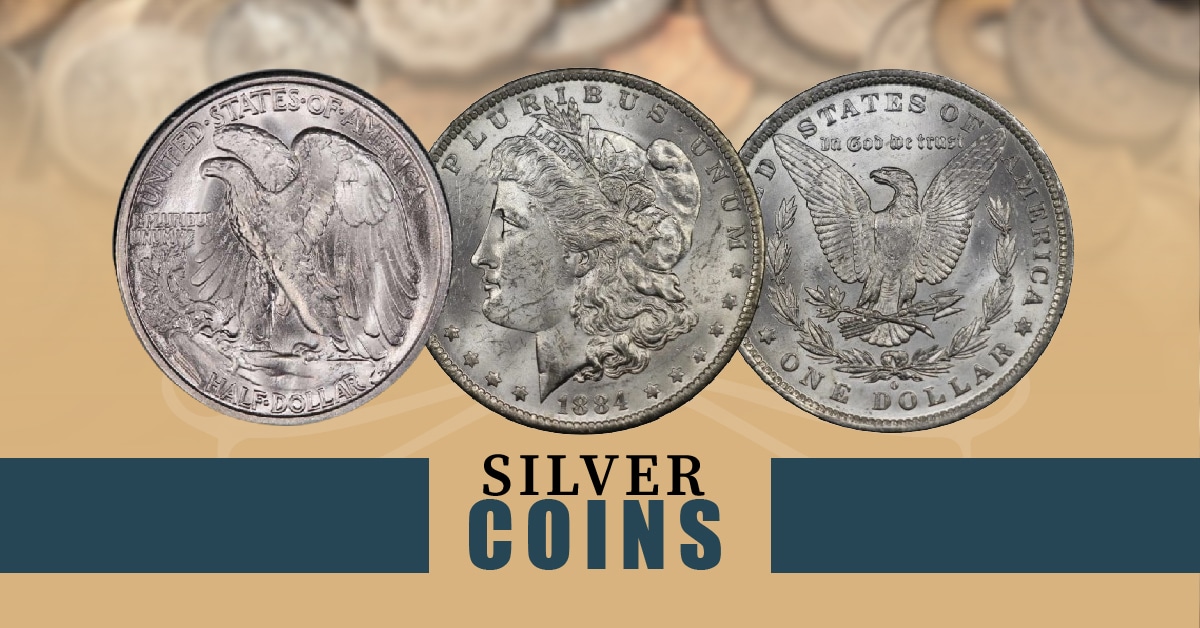How to Turn Your Silver Coins Into Cash: A Beginner’s Guide
- Posted on 30th May 2024
- in Silver and Gold Bullion Buyers
- by Antique Coins Buyers
Do you have a collection of silver coins that you’d like to turn into a potentially lucrative venture? If you’re new to selling coins or need some advice, this guide will teach you how to do it correctly. You’ll learn to find the best buyers, value your coins, and negotiate a reasonable price. So, let us embark on this exciting journey that could potentially boost your finances!

#1. Understand the market for silver coins before selling.
Before you sell your coins, it’s crucial to understand the market. The value of silver coins fluctuates according to supply, demand, and price. By staying informed about current trends and news, you can identify the optimal time for selling. You can also empower yourself by conducting thorough research, consulting experts, or using online resources to determine the value of your coins.
#2. Identify local buyers interested in silver coins.
Finding local buyers near you is the easiest way to sell your coins. Look for coin shops, pawn shops, and jewelry stores that sell silver coins. They might provide you with immediate cash or offer a complimentary coin appraisal. You can also seek referrals from friends and family members who have previously sold silver coins.
#3. Compare different buyers’ offers for silver coins.
Remember, not all buyers are the same. Some may offer more than others or have different areas of expertise. It’s essential to compare different buyers’ offers, ratings, and reputations. You aim to find an honest, fair, and knowledgeable buyer who will give you the best deal. Before finalizing a transaction, it’s also important to verify the buyer’s reputation and credentials. Look for reviews or testimonials from previous sellers, and check if the buyer is a member of any professional organizations or associations.
#4. Concentrate on antique coins with a higher value than silver content.
If you have a collection of antique coins, you may have a valuable asset. Antique coins are those that are old, rare, or hold historical value. They can be worth significantly more than their silver content. To get an accurate valuation, you must research the history and rarity of your antique coins and consult experts. Factors such as the coin’s condition, rarity, and historical significance can greatly influence its value.
#5: Determine the value of your old coins based on their date, mint mark, and condition.
Old coins are not necessarily antiques, but they may still have some value. Ancient coins are no longer in circulation and may have unique features. Check your old coins’ date, mint mark, and condition, and then use online resources to determine their value. For a more accurate valuation, consult with a coin dealer or expert.
#6. Search for US coin buyers who specialize in US coins.
If you have coins related to the United States, such as commemoratives or coins from a specific period, look for buyers specializing in US coins. They may be more interested and knowledgeable about the history and culture of the United States, so they will pay more for your coins. You can connect with potential buyers by attending coin shows or auctions focused on US coins.
#7. Contact antique coin buyers, who collect and trade historical coins.
Antique coin buyers collect and trade all types of historical coins. They may be interested in your silver coins, as well as any other coins you have. It would be helpful if you could share the details and stories behind your coins, as well as be honest and open about their condition and rarity.
#8. Display your antique coin as a piece of art and history.
Your antique coin is not just a piece of metal, but a work of art and history. When presenting it to potential buyers, ensure it shines and stands out. You should take high-quality photos and provide detailed descriptions of your coins. You can also create a catalog or portfolio of your coin collection to demonstrate its value and uniqueness, as well as to share the rich history and culture that each coin represents.
#9: Negotiate with coin buyers to get the best price for your coins.
When you find a buyer interested in your coins, be prepared to negotiate. You should know your coin’s value and the lowest price you are willing to pay. Negotiation is an expected part of the selling process, and you should strive for a win-win outcome. You may also consider selling your coins on consignment, meaning a dealer or auction house will sell them on your behalf and charge a commission. This can be a good option if you’re not in a hurry to sell and want to maximize your profit, but it’s important to understand the terms and conditions of the consignment agreement.
#10: Seal the deal with the buyer and finalize your coin sale.
After you’ve agreed on a price with a buyer, you should complete the transaction. Ensure that the terms are clear and written down. Before closing the transaction, you should discuss the payment method, delivery, and other details. You should also know any applicable taxes or fees when selling your coins. In many countries, the sale of silver coins is subject to capital gains tax. It’s important to understand your tax obligations and consult a tax professional if necessary to ensure you’re in compliance with the law.
Selling your silver coins can be an enjoyable and profitable experience, especially if you know how to do it correctly. However, it’s important to be aware of the potential risks and challenges. For instance, the value of silver coins can fluctuate, and there’s always a risk of selling your coins for less than their true value. It’s also important to be cautious of potential scams or unscrupulous buyers. By following the steps in this guide and staying informed, you can mitigate these risks and make the most of your silver coin collection.



